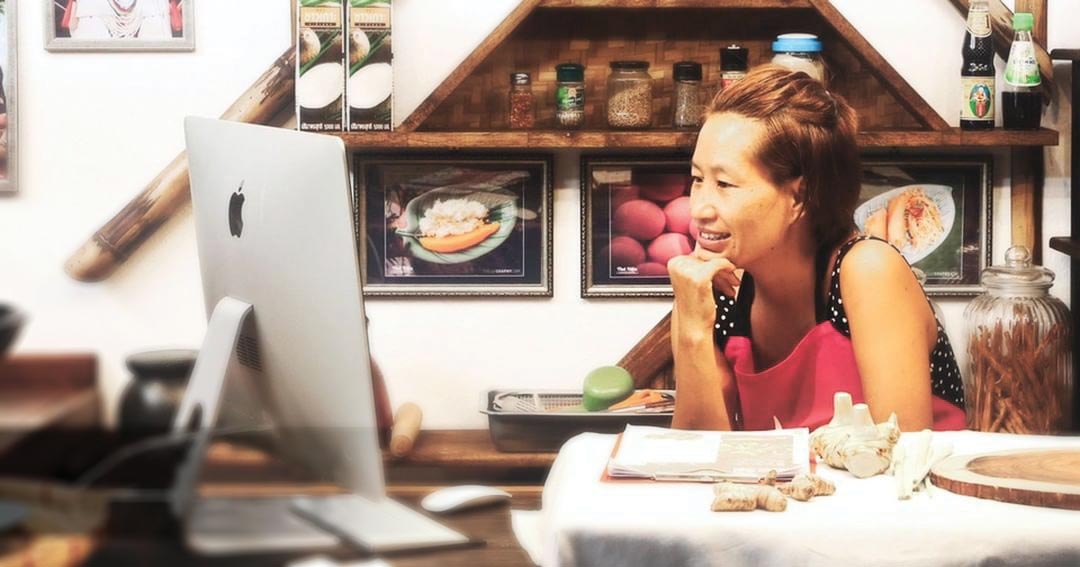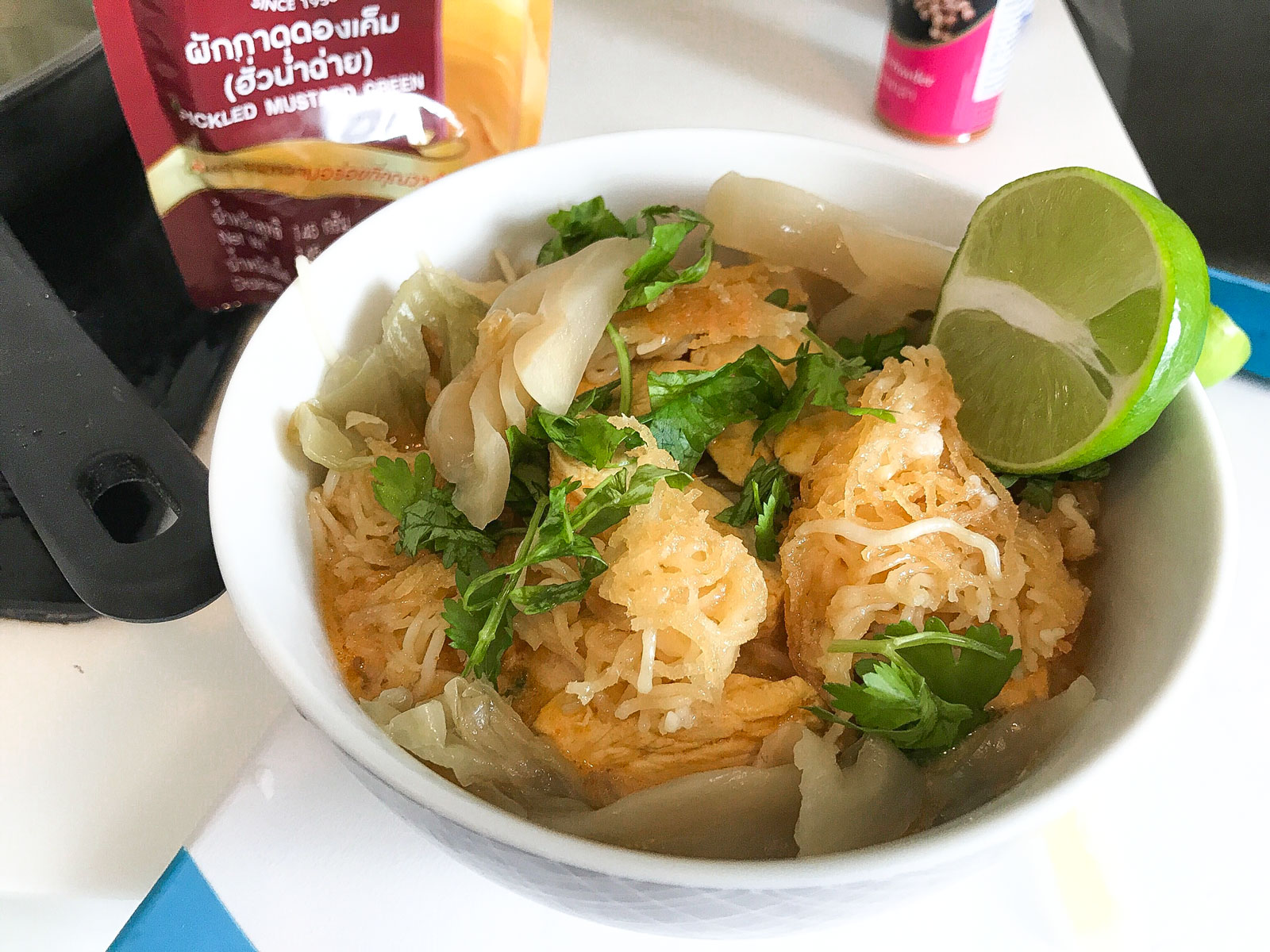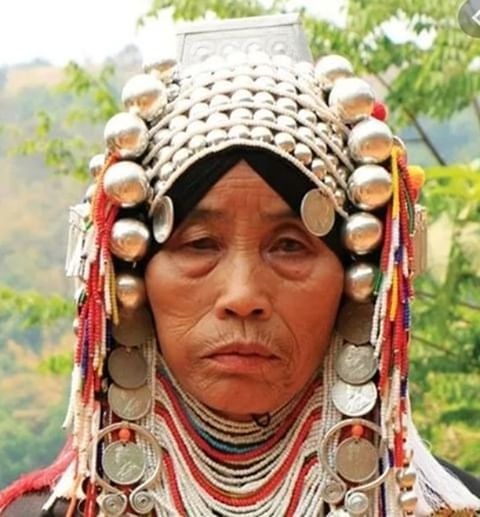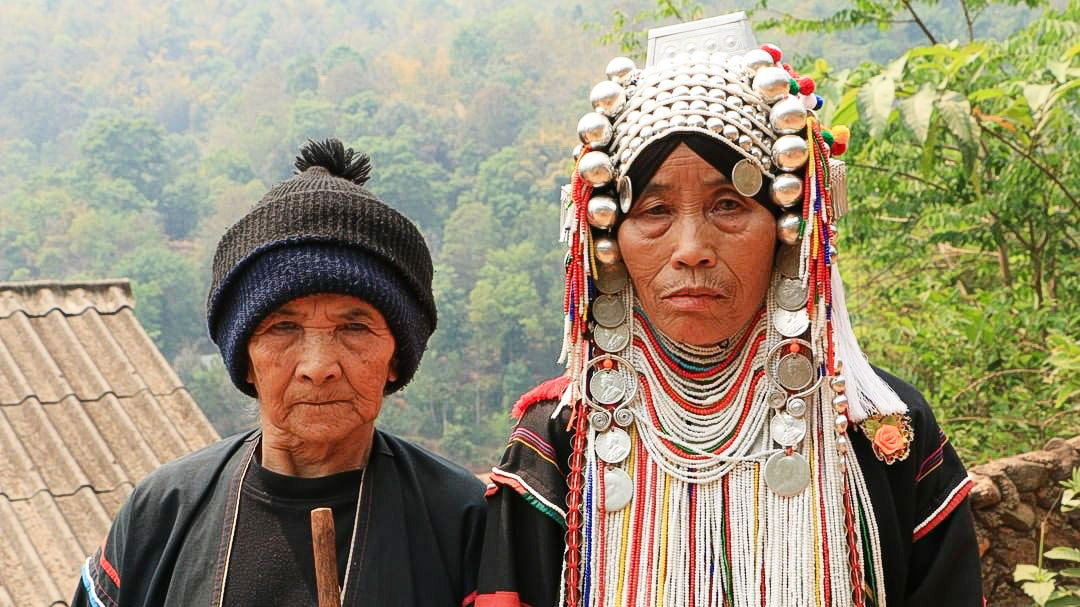Boiling oil sputtered as the noodles turned crispy. Instructor Niti Muelaeku, watching intently through a Zoom window, was at her culinary school in Chiang Mai, the student 700km away in Bangkok – her cooking classes just one of many things to shift online amidst the ongoing pandemic.
The finished product was khao soi, a red curry noodle dish topped with cilantro and pickled mustard greens, adding a sour tang on top of the signature intense spice that Thai food is famous for worldwide.
But while she is accomplished in Thai cuisine, this isn’t Niti’s native food. A member of the Akha, a hill tribe from Northern Thailand, she’s sure to promote her people’s cuisine even while teaching the methods of another.
“Akha food is much fresher than Thai food, and has more herbs,” Niti told the Globe. “Akha people use every part of the roots and plants in their recipes, and add even more spice than Thai people.”
In Thailand, the Akha number approximately 80,000 of Thailand’s roughly 750,000 hill tribe members – although Niti said there are roughly 200,000 worldwide, mainly in Myanmar and Laos. Most of those who have settled in Thailand, mainly in the northern Chiang Mai and Chiang Rai provinces, originated in neighbouring Myanmar, fleeing the civil war that took place throughout much of the 20th century.
Many Thais have never heard of the Akha, and their traditions and culture remain largely unknown to those from beyond the community. But while members of the older generation remain insulated from the outside world, Akha youth are increasingly succumbing to the allure of the fast-developing country around them.
While Niti desires for Akha people to attain more education and better their lives, she also fears that young Akha are forgetting their heritage.
“I can see from my niece and nephew, they don’t carry on the Akha traditions, they never grew up in the village like me, they grew up in the city,” she said.

But even as the Akha and other tribes people are pressured, explicitly or not, to assimilate into the dominant Thai culture, there remain structural barriers preventing them from accessing the mainstream.
Approximately 480,000 people are officially stateless in Thailand, and UNHCR reports that hill tribe people constitute the majority of these. Statelessness excludes these people from social programmes such as free government healthcare and access to formal education. Akhas are sometimes given the opportunity to earn Thai citizenship by finishing a university degree, Niti said, but many of them cannot afford to do so.
The traditional lifestyle of the Akha and their reliance on the land has also clashed with modern Thailand, leading to occasional disputes between the tribe and government officials who oversee forests and national parks. Niti said it can be unclear where the boundaries truly lie deep in the woods, leaving Akha communities to advocate for their land needs in a legal system they often don’t understand.
For the first month I knew Nikorn, I didn’t know he was Akha. He didn’t introduce himself as Akha. He’s comfortable speaking Thai, and dresses with no sign of Akha
While the lines between Thai and Akha land and culture are growing increasingly blurred, distinct cultural markers set the hill tribe apart from the majority.
Though increasingly rare, Akha traditional dress, with its embroidered metal adornments, stands apart from traditional Thai clothing. In the past, Akha women dressed based on their marital status and wealth – the more jewellery you had, Niti said, the wealthier your family was. When girls turned 12, their family made them a dress with colourful embroidery which they wore until they were 21, at which point they’d receive an elaborate headdress adorned with golden balls.
Nikorn, a young Akha employee working at Niti’s cooking school, Thai Akha Kitchen, in Chiang Mai said his native language is a line connecting him to the rest of the tribe hundreds of kilometres away.
“I’m so proud to be Akha because when we speak our language, Thai people cannot understand us. But I can speak Thai as well,” said Nikorn, who is currently studying tourism at Chiang Mai University, using the money he earns at Thai Akha kitchen to pay for his tuition.
But as Akha youth like Nikorn increasingly assimilate into Thai culture, these markers of heritage are growing increasingly faint. Niti’s own identity as an Akha is complex, as, after living in the US for seven years, she considers herself culturally American. As a woman, she has felt judged by members of the Akha community for behaviours they consider improper for women, such as smoking cigarettes.
Having grown up in an Akha village in Chiang Mai, Nikorn attended a Catholic missionary boarding school, which supported his family as there were six siblings at home. Due to the many educational services offered to Akhas by Christian charities, many Akha like Nikorn’s family have converted from their indigenous religion of animism, to various sects of Christianity.
“For the first month I knew Nikorn, I didn’t know he was Akha. He didn’t introduce himself as Akha. He’s comfortable speaking Thai, and dresses with no sign of Akha,” Niti said. “Then finally one day he told me ‘I’m also an Akha’. I couldn’t recognise it, and this is something that made me really really sad.”



Akha people are tribal people, we are the same, but different … We have another language, we have another culture, and slightly different faces, but inside, everyone’s the same
Though Niti says that she does not necessarily want the Akha to entirely return to their traditional ways, she wants animism, and wider Akha heritage, to be preserved in large part in practice and memory. She dreams of one day turning Thai Akha Kitchen into a museum and education centre, and to host homestays with Akha families for tourists, educating travellers from across the world about her people.
“I just want every Akha person in Thailand to be proud of who they are. For Nikorn’s generation, I see they wanna blend 100% into the city, and I’m sad they don’t want to carry on the Akha traditions,” she said.
Despite Niti’s concerns about the detachment of the young generation from their heritage, Nikorn felt his connection to his people was strong in its own way. He saw his Akha ancestry as one vital piece of a broader human tapestry.
“Akha people are tribal people, we are the same, but different,” he said. “We have another language, we have another culture, and slightly different faces, but inside, everyone’s the same.”


